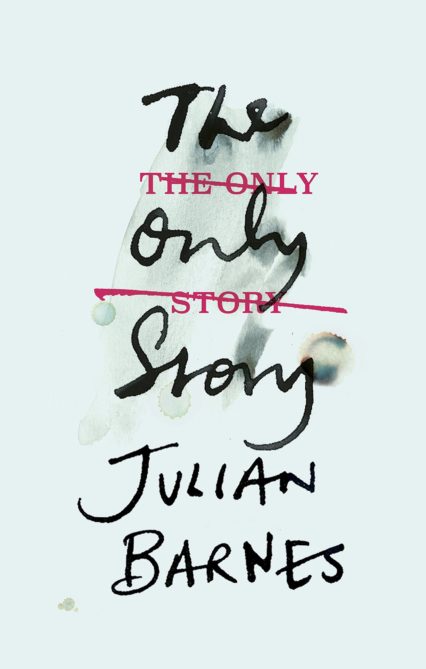Adam Somerset reviews The Only Story, the new novel by Julian Barnes, which features tripartite structure and some lines which cut deep.
 A lively critical scene thrives on divergence of opinion. In culture, as in politics, the ability to engage in argument without quarrel is indicator of its maturity. A television discussion this February featured Ken Clark and Bernard Jenkin. Antagonism at the political level did not effect the personal relations which were warm. Julian Barnes has been a published novelist for 38 years and ought to be a recognisable voice. The Only Story divided its first reviewers in a way that was refreshing. “This is Julian Barnes at the height of his powers,” reported the critic at the Times. The reviewer at sister paper the Sunday Times was less persuaded. “The passion the novel purports to describe never takes wing,” wrote reviewer Theo Tait.
A lively critical scene thrives on divergence of opinion. In culture, as in politics, the ability to engage in argument without quarrel is indicator of its maturity. A television discussion this February featured Ken Clark and Bernard Jenkin. Antagonism at the political level did not effect the personal relations which were warm. Julian Barnes has been a published novelist for 38 years and ought to be a recognisable voice. The Only Story divided its first reviewers in a way that was refreshing. “This is Julian Barnes at the height of his powers,” reported the critic at the Times. The reviewer at sister paper the Sunday Times was less persuaded. “The passion the novel purports to describe never takes wing,” wrote reviewer Theo Tait.
A similar tack was taken on Radio 4’s Saturday Review. The narrator’s tone, said a reviewer, was too dry, too distant, too donnish. These reviewers are accurate but accuracy need not be correct. A narrator who is distant from another time has been a constant in the Barnes fiction. The widowhood of Geoffrey Braithwaite, narrator of Flaubert’s Parrot (1984), is slow to emerge in the welter of literary observation. Tony Webster, the central character in The Sense of An Ending (2011), is a retiree and stumbling protagonist in ignorance of crucial events in his own life. “I had wanted life not to bother me too much, and succeeded,” he confesses, “and how pitiful that was”.
Paul Roberts, another man of age, is narrator of The Only Story. Barnes’ subject is not the evocation of a transformative passion but a life viewed through the filter of memory. His theme is precisely the lessening of emotion. Towards the end Paul writes of himself, objectively: “He knew the contentment of feeling less… so his life consisted mainly of observation and memory.” Vivid memory of sex has faded; this is no On Chesil Beach. In its place are closer particular memories. The young Paul likes Susan’s teeth: “tapping her teeth – lightly with my middle finger, checking that they were there… it was a little ritual, as if I was taking an inventory of her.” He describes her ears: “From the discreet, almost absent lobe, they set off northward at a gentle angle, but then at the mid-point turned back at the same angle to return to her skull. It was if they had been designed according to aesthetic principle rather than the rules of auditory practicality.”
The novel’s tripartite structure moves from exhilaration to dismay to resignation. The voice alters from “I” to “You” to “He”. But the differing voices all contain an acuteness of expression. Even before a love affair has started “there was already a complicity between us. Not I insist, as yet a complicity to do anything. Just a complicity which made me a little more me, and her a little more her.” Paul recognises the differences in personality: “She is neither cynical nor idealistic; she lives without the mental clutter of theorising, and takes each circumstance and situation as it comes.” On the inner world that is comprised of two: “That was what lovers did. They added to one another’s understanding of the world.” Paul identifies the true root of human connection: “She laughs at what I laugh at.”
When the story moves to dismay, the view from the outside of the alcoholic partner is: “You are on your own. You have no theories of life yet, you only know some of its pleasures and pains. You still believe, however, in love, and in what love can do, how it can transform a life.” As consolation against pain of distance the narrator seeks “confirmation that existence was essentially a ludic activity.” Barnes writes a passage of high poignancy on sad sex. It is sex with “toothpaste failing to disguise the smell of sweet sherry… when you feel you are losing all touch with her, and she with you.”
This week literary debate has ignited over the criteria of entry for the Man Booker Event. North American fiction leans towards the expansive. In the context of Franzen and DeLillo, Lincoln at the Bardo was relatively short. Annie Proulx’s Barkskins (2016) came in at 750 pages and the book’s editors obliged the author to shed another 150. Julian Barnes’ aesthetics have always favoured a prose of distillation over a peacock’s display of how much research the author has undertaken. His novel on the galvanic changes in Eastern Europe The Porcupine (1992) came to fewer than 140 pages.
So it is too with The Only Story. “Most of us only have one story to tell,” declares the narrator in the first page; “There’s only one that matters. This is mine.” It is one that cuts deep. Paul in looking back does not want to understand love, “but to experience it, to feel the intensity, the coming-into-focus of things, the acceleration of life, the entirely justifiable egotism, the lustful cockiness, the joyful rant, the calm seriousness, the hot yearning, the certainty, the simplicity, the complexity, the truth, the truth, the truth of love.”
After The Noise of Time the author has returned to where he is best suited. The Only Story is great Julian Barnes.
The Only Story is available now from Jonathan Cape.
Photo Credit: Ellen Warner
You might also like…
This month our WAR Book Club members are reading The Blue Tent and asking its author, Richard Gwyn, their burning questions.
Adam Somerset is a regular contributor to Wales Arts Review.











